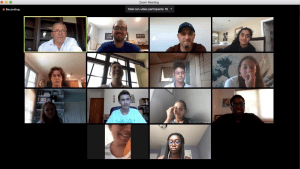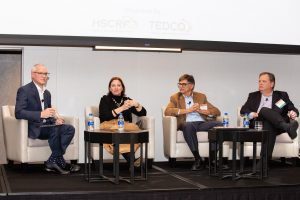
How Matan’s Progress Labs is Delivering Much Needed Biomanufacturing Real Estate Across Maryland
Helping companies achieve speed to market is top priority for Progress Labs’ 2,000,000 sq. ft. of new spec properties for biotech manufacturing.
Matan Companies chose the right time to enter the life sciences manufacturing sector of real estate. The Frederick-based real estate developer is well on its way to delivering the 2 million square feet of manufacturing space it promised through Progress Labs, a project dedicated exclusively to spec properties for life sciences manufacturing along the I-270 corridor from Frederick to Montgomery County.
Mark Matan, Principal, and Managing Partner, said the company was already well regarded for its warehouses, as well as its lab spaces. But Progress Labs was specifically born out of a need for more manufacturing space in the biotech and life sciences sector in the capital region. So, in essence, Matan combined the two things they were already experts at to target a niche market.
“The general theme of it is there’s a lot of people with a need and not a lot of these buildings,” Matan said. “The other thing you have to remember about these buildings is we’re building a larger footprint, so as you get closer into town, it’s harder to find the green space to do it.”
The company has delivered 500,000 square feet of space for Progress Labs, with another 500,000 under construction. Matan said the company plans on commencing construction of the last million square feet of space within the next six months.
The 2 million square feet of space would equate to about 10,000 jobs on the I-270 Tech Corridor. And the demand for jobs is there; four out of the 10 Operation Warp Speed companies, which helped develop the COVID-19 vaccines, were located on I-270.
Matan designed Progress Labs to benefit a few different types of clients, including contract manufacturers, companies involved in FDA trials, and government-adjacent companies.
“Because of the location, there are either direct uses with the government or through their contractors; for instance, Leidos runs the Fort Detrick facility so we do a lot of work with companies like Leidos,” Matan said. “And then … There are so many FDA trials going on so we do target the new drug companies.”
For these companies, speed to market is everything. That’s why Matan builds all of their Progress Labs spaces as 100% spec. And it’s proven effective; Ellume, the Australian-based diagnostics company, is almost done moving into their space at Center 85 after signing a lease in May. Matan said the company is anticipating a Sept. 1 start date. And so far, every building Matan has completed for Progress Labs is already leased.
“So speed to market is everything,” Matan said. “Whether it’s COVID-19 or whether you just got some TB drug approved, these companies need it the next day.”
If companies waited until they needed their spaces to develop them, it would take at least 12 to 18 months for Matan to get the space up and running. Instead, they focus on their tilt-up buildings that are similar to their warehouses.
There are several key differences when it comes to developing for a life sciences manufacturer, however. The company must ensure the building has all the necessary entry points for utilities and deliveries. They must also provide a floor that can accommodate what’s above and underneath it.
Additionally, Matan considers it vital to make the buildings aesthetically pleasing, with outdoor spaces and lots of glass windows to keep the space well-lit. Because these companies have many employees, Matan considers it a high priority to make the buildings people-friendly in addition to machinery-friendly.
“So lots of glass and amenities in the area, and landscaping, it’s not a roadway trucking type building. It’s not that look,” Matan said. “But we are really focused on providing the big shell to these large bio companies, and then they kind of run with the interiors.”
The company is well on its way to leasing out the space that has yet to be delivered. Increasingly, more companies are coming to Maryland because there’s enough space to build these extensive facilities.
“Boston is the traditional spot, but it’s full and expensive, so they’ve been moving to places like Raleigh, North Carolina, and Atlanta,” Matan said. “So in order to truly attract these tenants, we’re working with a local brokerage community in the local municipalities to come out of the ground spec, and so far, it’s been successful.”
However, Matan said the company does hope to expand into the Raleigh-Durham-Cary Research Triangle and develop more vertical lab space in more dense areas like Northern Virginia.
But Matan also has big goals for Progress Labs.






